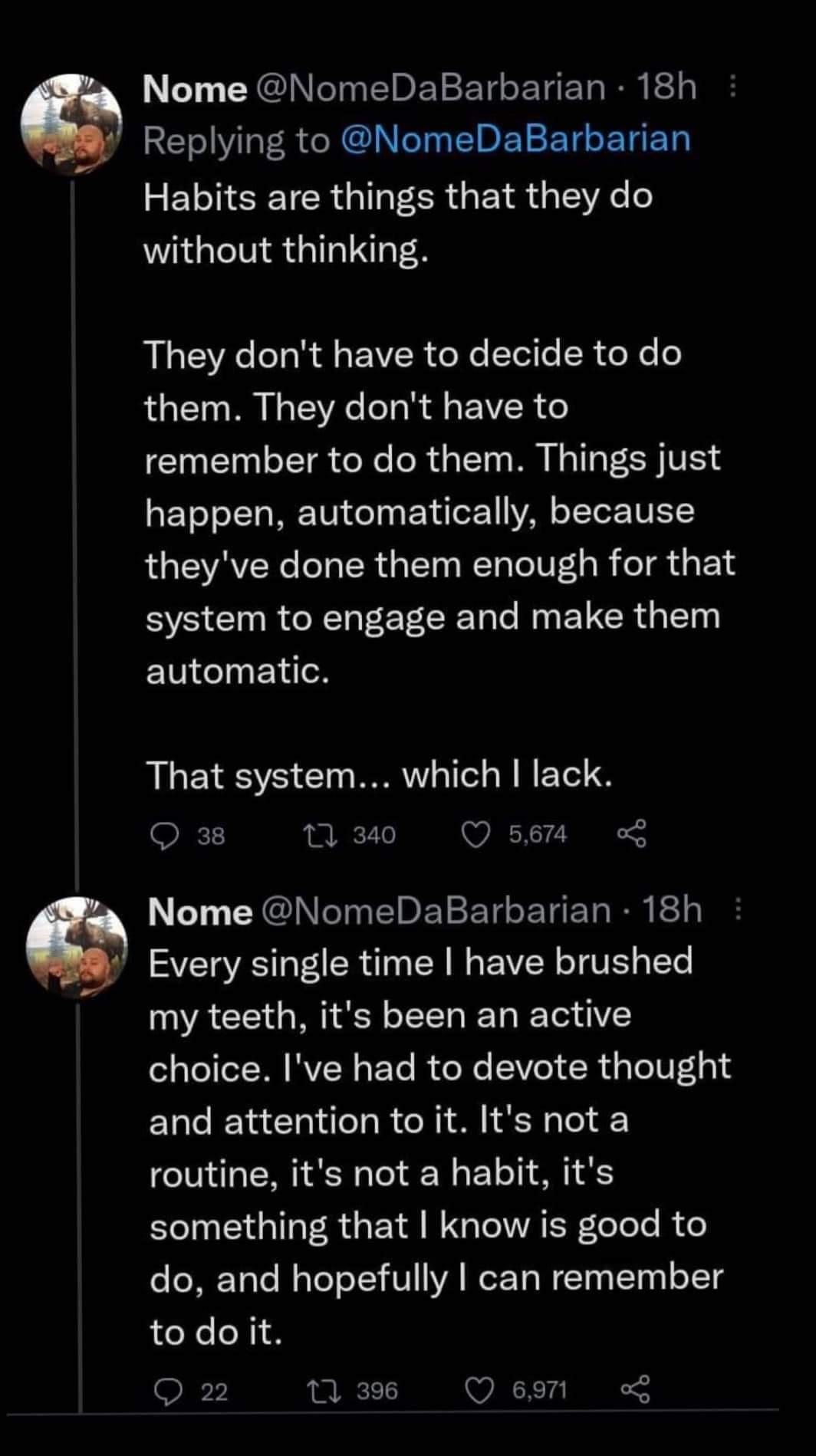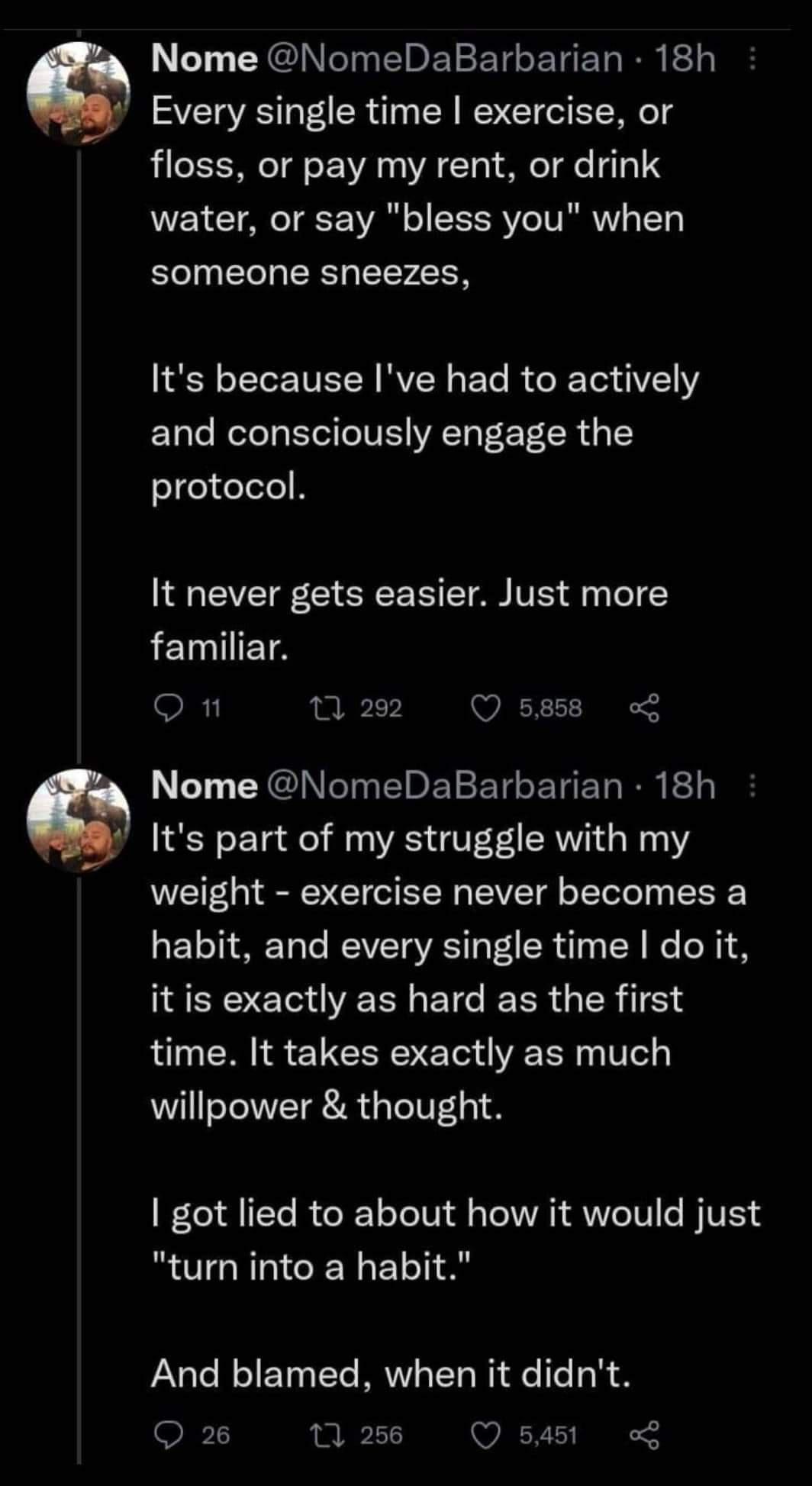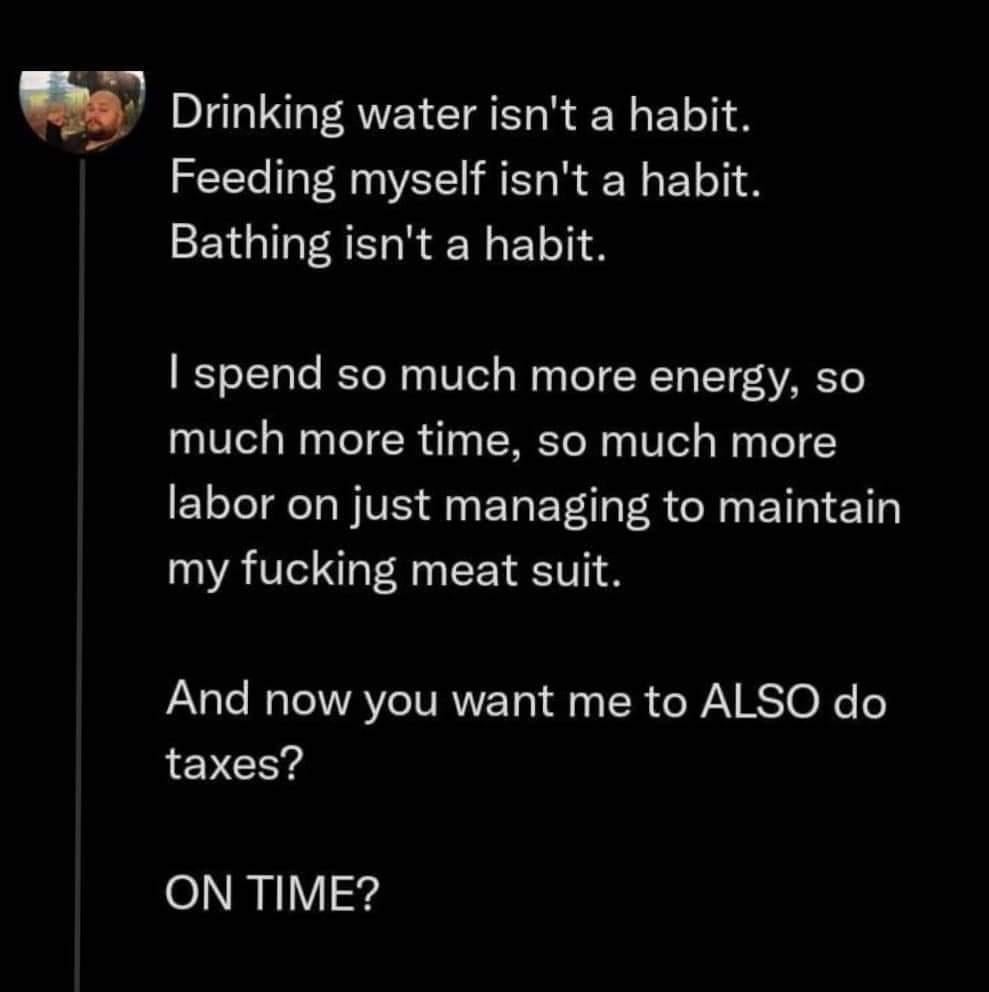Thank you Nome @NomedaBarbarian
For the visually impaired, the images are a series of Twitter screenshots.
Full transcription of text below images.

Full transcription of text below images.

Full transcription of text below images.

Full transcription of text below images.
@NomedaBarbarian on Twitter:
Thinking about how I’ve been lied to as an #ADHD person about what habits are.
That apparently is not what neurotypical folks get to experience.
Habits are things that they do without thinking.
They don’t have to decide to do them. They don’t have to remember to do them. Things just happen, automatically, because they’ve done them enough for that system to engage and make them automatic.
That system…which I lack.
Every single time I have brushed my teeth, it’s been an active choice. I’ve had to devote thought and attention to it. It’s not a routine, it’s not a habit, it’s something that I know is good to do, and hopefully I can remember to do it.
Every single time I exercise, or floss, or pay my rent, or drink water, or say “bless you” when someone sneezes,
It’s because I’ve had to actively and consciously engage the protocol.
It never gets easier.
Just more familiar.
It’s part of my struggle with my weight–exercise never becomes a habit, and every single time I do it, it is exactly as hard as the first time. It takes exactly as much willpower & thought.
I got lied to about how it would just “turn into a habit”. And blamed, when it didn’t.
Drinking water isn’t a habit. Feeding myself isn’t a habit. Bathing isn’t a habit.
I spend so much more energy, so much more time, so much more labor on just managing to maintain my fucking meat suit.
And now you want me to ALSO do taxes?
ON TIME?


It’s just the ever-present need to feel unique. I feel like everyone goes through it.
As we grow up we start to notice differences between ourselves and the average person. We rationalize this by assuming we’re unique, when really we just spend a lot more time thinking about our own differences than we do thinking about other people’s.
The reason that sonder evokes such a strange feeling when it happens is because we’re usually not fully aware of the complexity of the people around us to the same degree as our own. We just pile those around us together into the category of “normal” people, while at the same time dissecting our own features to find every irregularity.
From there, we feel the need to explain the differences, usually gaining a sense of superiority, like the common “not like the other girls” sentiment, or we feel ostracized and seek to find like-minded communities to join, such as the neurodivergant groups in this case.
I’m not saying this person isn’t unusual in some significant way - I’m sure they are somehow - but this understanding of how habits work is pretty normal.
This is such a nice way of saying it lol
Isn’t it? That’s the sort of thing that helps.
Same principle behind the “Everybody is perfect but me in Facebook” misperception - ones sees a cultivated image of others there which one compares with the intimatelly familiar image (with all the warts) one has of oneself and, well, a carefully cultivated image is almost always superior to a nothing hidden one unless you’ve gotten to a point were you actually value people’s quirks more than flat, tasteless, always-the-same “perfection” and/or can read beyond peoples’ masks (things are a lot my interesting when you ask yourself “Why has this person felt the need to post this?”)
This is then amped up by certain personality traits which are stronger at certain stages of one’s life (i.e. the natural insecurities of youth) which fill the “missing pieces” in other people’s life, drives and intentions with an overly positive fantasy rather than a realistic one (which would roughly be “Everybody fucks up at times. Everybody has quirks. Lots of energy spent on managing appearance means the rest of a persona is likely underdeveloped”).
It doesn’t help that the current society of celebrity-celebration, ubiquitous-marketing and creating-emotion-to-induce-action is almost entirelly anchored on fakeness: we’re constantly faced with carefully-crafted unachievable fantasy examples of what we are told we should aim for (normally with a “buy this to be more like that” message) and that always leaks something, even if just an uncomfortable pressure.
This is far from being just a problem for those who are not neurotypical, though those who for one reason or other are “more aware of the ticking of their internal clockworks” probably spot better that there are pushes and pulls (or at least attemptes at it) from the outside even if they can’t quite track it down.